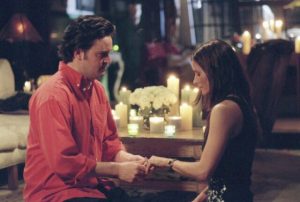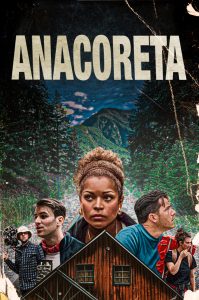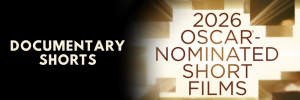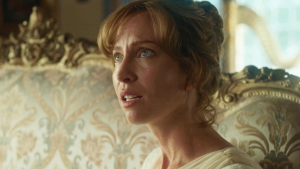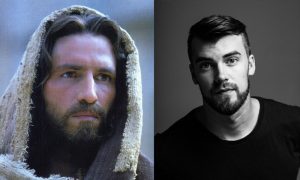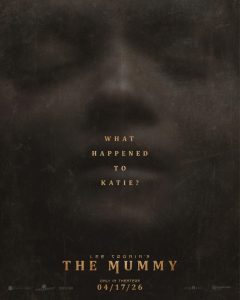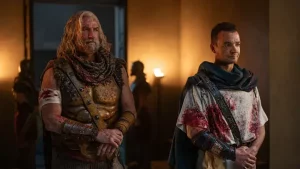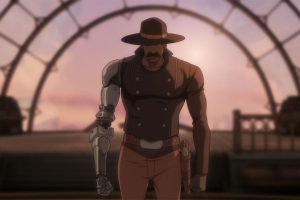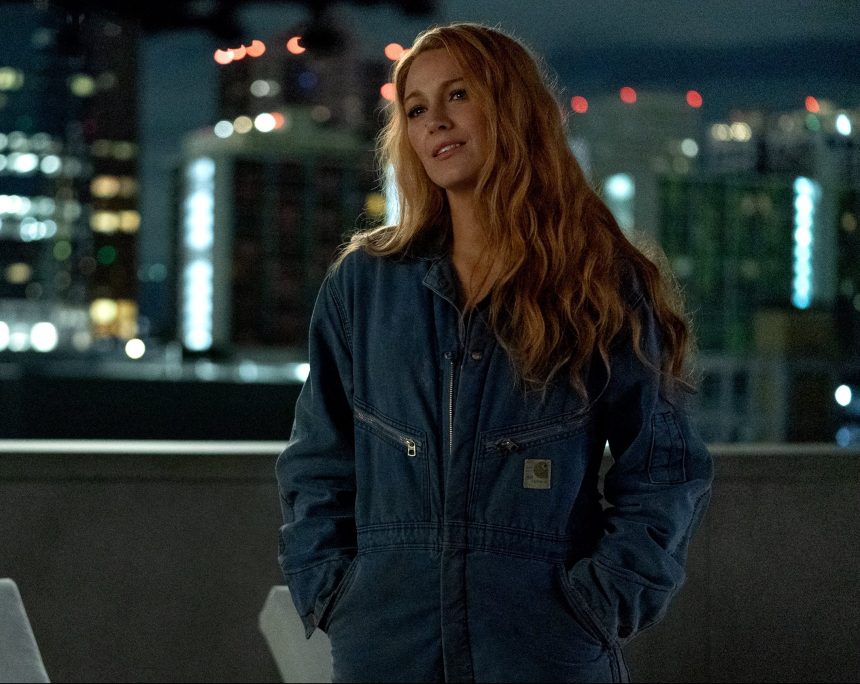
“WE BREAK THE PATTERN BEFORE
THE PATTERN BREAKS US”
The world of literature is filled with an abundance of captivating tales across all genres, touching upon countless readers when engaging themselves in such written narratives that they fancy. Over the years, hundreds upon thousands of novels have become “bestsellers”, selling prints to the masses and gaining quite a following from either the books themselves or the author who wrote them. Moreover, several bestsellers have evolved into worldwide phenomenon, with the literary work (be it a book or series) taking the world by storm and creating a frenzy of popularity on a global scale. While there have been many classical entries of this grouping, there have been plenty of modern day bestselling books that have gained a massive following and recognition, which includes J.K. Rowling’s “Harry Potter” series, Dan Brown’s “The Da Vinci Code”, Khaled Hosseini’s “The Kite Runner”, Stephanie Myer’s “Twilight” series, G.R.R. Martin’s “A Song of Ice and Fire” series, E.L. James’s “Fifty Shades” trilogy, amongst many others, with many finding a cinematic representation on either big or small screen. Now, Sony Pictures Entertainment and director Justin Baldoni present the latest bestselling “page to screen” film adaptation with the movie It Ends with Us, based on the widely popular book from author Colleen Hoover. Does this movie reach the same caliber energy and entertainment of that of its literary counterpart or is it another failed adaption of a “book to film” endeavor?
THE STORY
Wrestling with the recent passing of her abusive father, Lilly Bloom (Blake Lively) sets out to establish a bright new future for herself, taking a chance in Boston, where she plans to open a flower shop, a passion project she has always wanted. Coming into her life unexpected is Allysa (Jenny Slate), who instantly bonds with Lilly and becomes her best friend / employee at the shop, while Allysa’s brother Ryle (Justin Baldoni), prominent neurosurgeon, makes a sudden romantic prospect towards the young woman during a chance encounter onto of an apartment rooftop. Known for his one night stands on and frivolous stints with other women, Ryle isn’t a man for romantic relationship, but becomes quite fixated on Lilly, trying to break through her hesitation as the pair gradually fall in love with each other. While there romance blossoms, Lilly uncovers more about Ryle’s dark side, with a series of domestic accidents and outbursts that leave the young woman to wonder about her safety, caught in-between love and fear. During this confusing time, Lilly suddenly comes across Atlas Corrigan (Brandon Sklenar), an old high-school classmate she helped through difficult times in their youth, who is now lives in Boston and has found a new upcoming restaurant in the community. However, the reappearance of Atlas stirs up old feelings within Lilly and draws jealousy ire from Rely, who violent temper starts to frequently flare up against Bloom’s old flame.
THE GOOD / THE BAD
For those who didn’t know, I did work bookstore retail for quite some time, with my time at Borders Books from 2006 until the company closed in 2011 and continued onward into Barnes & Noble from 2011 to 2020, leaving due to the COVID-19 pandemic (amongst other reasons). Still, with over fourteen years of bookstore experience, I saw the rise in popularity of many novel and book series that have taken the literary world by storm. Of course, coming at the tail end of Rowling’s Harry Potter series was indeed very interesting and worked that night when “Harry Potter and the Deathly Hallows” was released on such a memorable time. I was also there for when all of Myer’s “Twilight” books were published and saw the growing fandom of “Team Edward vs. Team Jacob” amongst avid teen readers out there. Yes, I even saw the craziness of when E.L. James’s “Fifty Shades” novels debuted and seeing the variety of readers dive head first in the romantic erotica tale of Christian Gray and Anastasia Steele. It was always interesting to see different novels from different genres become mega bestsellers and selling out every time when we got them in. Even classic authors from the likes Agatha Christie, C.S. Lewis, J.D. Salinger, Kurt Vonnegut, Harper Lee, Orson Scott Card, and several others continue gain followers / readers after many long years after their initial releases. Additionally, I did find it always interesting to see novels that had a modest following amongst their fanbase and readers, skyrocket exceptionally in the mainstream limelight due to a cinematic representation for a TV series or movie adaptation. This includes fantasy writer G.R.R. Martin’s “A Song of Ice and Fire” saga when HBO’s Game of Thrones was released as well as romance novelist Juila Quinn published her “Bridgerton” series when Netflix’s Bridgeton came out. There are plenty of others out there that share the same type of celebratory worldwide bestselling notoriety, but then this review will be considerably longer. Suffice to say, the world of books and novels continues to churn out plenty of new materials throughout the years, seeing the coming and goings of trends within such literary tales as well as seeing the ravenous appetite readers have to escape into a variety of narratives across the many genres out there.
This brings me back around to talking about my It Ends with Us (2024) review, a romantic drama based on the book of the same name from author Colleen Hoover and the latest “page to screen” film adaptation. Naturally, as I’ve stated in several other reviews, Hollywood has always looked towards adapting a popular brand (i.e., toy, novel, video game) into feature length endeavors, with the main draw being it would sell to the masses quicker and easier. Such a novelty idea has consumed the literary world, with major studios knabbing up the rights to literary works every now and again in order to “cash in” in its popularity for a film adaptation. Such is with the case of author Collen Hoover and her novel “It End with Us”. While I personally haven’t read any of Hoover’s works, I did see the steady rise of her acclaimed amongst reader consumers, with my work (another retail job) having a several dedicated shelves that are singularly devoted to her various books and seeing them sell on a rapid pace. So, I knew (from my experience) that a film adaptation would probably one day materialize from one of her novels, with “It Ends with Us” being the prime example of this cinematic treatment. I can’t remember when I first heard about it, but I think it was sometime this year that movie based on Hoover’s novel was coming out and that actress Blake Lively was attached to the project in one of the lead roles.
As for the movie trailer, I really didn’t see much of it. I knew it was released online, but I didn’t check it out and I think I only saw the preview for it in theaters like twice…and that was it. It definitely looked interesting, but it wasn’t so much on my radar as a “must see” film to watch in August. Still, with the rise of popularity continuing for Hoover’s work and with the selling out of the MTI (movie tie-in) edition of “It Ends with Us” seeing uptick in interest at my job, I thought to myself that I might have to give this film adaptation a look over when it came out. So, I took a chance and decided to check out this movie a few days after its theatrical release on August 9th, 2024, with my decision to see Borderlands, which also was released on the same day, before this one. However, after seeing Borderlands, I should’ve seeing this movie first, regardless of what criticisms I have about this particular adaptation. I did wait a week or two to collect my thoughts on this film (working on a few other reviews to get done first) and I am now ready share my thoughts on Hoover’s cinematic representation of her novel. And what did I think of it? Well, I actually liked it. Despite some nitpicks on characterization and some obvious missing components, It Ends with Us is a respectable and reasonably sincere gesture to Hoover’s source material, navigating a tale of love, hope, and survival in trying times of dealing with domestic abuse. There’s charm and whimsy to the narrative, which is complimented by a gravitas and finding new life outside of dark trauma.
As a sidenote, I did not get chance to read Hoover’s novel, so I sort of walked into the movie blindly with just some vague notions of romantic relationships amongst several individuals taking center stage in the plot. Thus, my review will be solely based on what I saw and not so much on the “apples to apples” criticism on what was added or change in the movie. Though, I might mention or two thoughts on such translations in my personal examination of the film in this review. In addition, I do know of (at the time of writing this review) that there are several rumors going around the internet about Lively and Baldoni during their time making the film. Again, my thoughts of this movie will be solely based on what I saw in the picture and not on the internet “rumor mill” that happened between the casts and film crew…. even if it might or might not be true. With all that said and done…. let’s begin.
It Ends with Us is directed by Justin Baldoni, whose previous directorial works includes such films as Five Feet Apart and Clouds. Given his background as a director in filmmaking, Baldoni makes this particular project his most ambitious project, especially since the source material is based on a widely popular bestselling novel. To be sure, Baldoni does approach Hoover’s novel with one of respect and sincerity and, while I’m sure that some of the material gets lost in translation (presumably), the movie still retains what I can imagine will be the core fundamentals of literary novel. In this regard, Baldoni does succeed in accomplishing a feature film that uncovers some of complexity human emotions in its truest form, including those of reflections of self-worth, looking beyond physical facades for the truth, uncovering inner turmoil from within, and knowing when to move on; all of which help anchor the movie in a spiritual and moving piece of theatrical entertainment. For that alone, Baldoni does accomplish the film’s wholesome integrity and believability, showcasing and demonstrating his directorial skills by highlighting nuances that will surely resonate with viewers in finding love, rekindling old flames (looking back on them), and discovering the strength of standing up for what you believe in. Of course, the story being told is the classic love triangle angle narrative to a certain degree, which has been done many times over, but Baldoni knows how to capture this particular familiar yarn in an interesting way, especially with flashback sequences go examine Lilly’s past and helps explain her dilemmas and emotional feelings within the present-day storyline. Such storytelling elements are used quite effectively and help provide a better understanding of the feature’s romance avenue as well as some of the deeper dramatic gravitas moments throughout the film. Maybe I’m a little bit of the “hopeless romantic” when it comes to stories of love and romance cinematic tales (I’m a sucker for that), but I enjoy the tale being told in the movie, with Baldoni bring to life Hoover’s book with attention to detail and enjoying his own artistic flourishes in the process.
Of course, the biggest impact from Hoover’s novel is the truly dark side of human behavior within a relationship (be it partners, family members, or even friends), with Baldoni touching upon those moments with integrity and hard truths to be found. Naturally, I’m talking about the abusive nature of domestic violence, which is a very real thing in the real world and something that should not be taking lightly. Lilly’s journey in It End with Us highlights this notion to the letter as Baldoni captures the highs and lows of her tale by present in her budding romance with Ryle (and his violence outbursts) and her past, which explores her childhood trauma dealings with her abusive father. While I can tell that Baldoni showed a little bit of restraint in these moments (more on that below), I do praise him (as well as Hoover for originally writing) for exploring such terrible human behavior and showing that it could happen to anyone, regardless of wealth, sex, religion, or status in society. Such awareness is profound and certainly does speak volumes, shedding a light on something that many not be visible to the public eye in certain individuals while behind closed doors. Overall, I felt that Baldoni’s directional intentions for the movie were wholesome and respectful, presenting a narrative has a sprinkle of humor, several spoonful helpings of romance drama, and a good and informative dose of self-reflection / self-worth within destructive relationship to help build upon a fully realized tale of love, loss, and courage.
For the movie’s presentation, It Ends with Us is a dreamy visual flair, grounded in realism aspects and nuances, yet still has some moments that are captured beautifully within a cinematic lens. While the production isn’t widely extravagant or anything could rival a modern-day blockbuster, the movie certainly feels like both organically real and fanciful within its background set-pieces and layout. From Lilly’s sleepy hometown to the lively streets of Boston, Baldoni and his team captures a beautiful cinematic flair for such intricate details of colors, style, and overall visual appeal within the setting’s backdrop. Places like Atlas’s restaurant (Roots) looks quite cozy and charming, while Ryle’s lavish apartment looks sleek yet cold; a juxtaposition of their inner reflective characters manifested outward. However, the best place the movie has to offer is Lilly’s flower shop, which is beautiful (what was shown) and has plenty of whimsical and character within the little floral shop.
Thus, the film’s “behind the scenes” main players, including Russell Barnes (production design), Alexandra Mazur, Elizabeth Nakane, and Carrie Stewart (set decorations), Eric Damen (costume designs), and Linn Gelert, Marci Mudd, and Annie Simeone (art direction) for their efforts in bringing Hoover’s world to life with such vivid details and vibrant realism. Additionally, the cinematography work by Barry Peterson does some impressive work in the movie, with not only various slick camera angles and shadowing / lightning effects, but also in some of the close-up facial expression of the film’s characters, which showcase the slight human emotion through the usage of both verbal and non-verbal communications of what they are feeling. Such details help build upon some of the more poignant scenes to life…cinematically speaking. Lastly, the film’s score, which was composed by Rob Simonsen and Duncan Blickenstaff, does a great job in highlighting some of the more emotional beats of the feature, with soft melodies and flourish that certainly tug at the heartstrings as well emphasize the importance of human drama being displayed on screen. A great musical composition soundtrack for this particular film genre.
While the movie does find integrity and success within its narrative being told, It End with Us does hit a few problematic areas along the way that, while don’t derail the feature, do point out some things that most likely were lost in translation from book to film. Of course, this particular practice is usually the case when adapting anything into a new entertainment medium, with film adaptation of popular books usually loose several nuances, scenarios, and sometimes characters altogether in trying to fit the primary narrative into a feature length motion picture. This movie is no different to commonplace criticism, with the film’s screenplay, which was penned by Christy Hall, tries to take the main bulk of Hoover’s novel and display it within the confines of a standard two-hour (and some change) production, with It End with Us having a runtime of 130 minutes, which translate two hours and ten minutes in length. While that may sound like a lot of time, such aspects of the story are indulged a bit too much and take away of certain narrative elements from the source material. Again, I haven’t read the book, but anyone can notice that certain events and scenes (something that are presumably vital to a few characters) were left out of the feature’s final edit of the screenplay, leaving some unevenness in a few areas. Additionally, while such a narrative is one that convey plenty of drama and emotions throughout, it’s clear where the main story is heading, which does bring a sense of predictable familiarity to the feature’s proceedings. That may be a good thing for some, while others might scrutinize such a narrative as being a derivate “love triangle” romance, with the movie’s screenplay clearly showing who Lilly will pick in the end. The journey getting to that point is intriguing and interesting, but the end result is a bit too familiar.
From a director’s standpoint, I felt that Baldoni also favored certain moments / characters more than others as well as prioritizing the romance aspect of Hoover’s story more so than the large message of domestic violence. Of course, that’s not to say that he “drops the ball” with not discussing (or showing) the destructive nature of such abuse, but it sort of takes a little bit of a backseat at times and not as frontal as it could’ve been. I’ll explain more about in the next paragraph. As for the characters, it’s clear that Baldoni wants to show his participation in the movie (as an actor) with a lot more attention placed on his portrayal of Ryle Kincaid versus a character like Atlas Corrigan. Maybe that might be a little bit of nepotism on his part, but it’s crystal clear that such a prioritizing of these two characters, both of whom play a large role in Lilly Bloom’s life, sort of feels lopsided and uneven. This also extends to several of the flashback sequences, which do highlight the young relationship that both Lilly and Atlas have when they were teenagers, but don’t have enough time to fully invest in these scenes, leaving a lot to be desired in those moments. With a bit more finessing on his part, Baldoni could’ve made the movie that much more better than an unbalanced scenes and overall trajectory. It’s not a complete deal-breaker for me, but it could’ve been that much more enjoyable with a slightly steadier hand at the movie’s helm.
Lastly, I felt that a part of the movie was lacking was in the overall execution of how everything played out in the domestic violence abuse sequences. I know I praised the story / movie for displaying such scenes in a mainstream cinematic endeavor as well as the awareness of such heinous acts of human behavior, but the feature does sort of downplay these movements with more restraint that they should be. Of course, I wasn’t expecting a “full-on” explicit demonstration of such a violent act, but what Baldoni and his team present is something a bit more “watered down”, presumably to fit into the PG-13 rating. It sort of like what I felt about the Fifty Shades movies, with such vulgar / taboo imagery being presented in rather tamed manner, losing the potency of what was supposed to be “shock and awe” in those disturbing moments. The same applies to It Ends with Us, finding the movie’s depiction of such abusive acts diluted and migrated to make it more easier and digestible for viewers to take in. Again, I get it that Baldoni has to walk a “fine line” in displaying domestic violence in the film, but I think he needed to take it all a bit more further that what was shown.
The cast in It Ends with Us is relatively solid across the board, with many leads and supporting characters giving their respective characters enough wholesome feeling that’s both fanciful for a motion picture feature as well as grounded in sentimentality / realism. Leading the charge in the movie is actress Blake Lively, who plays the film’s central protagonist character of Lilly Bloom. Known for her roles in Gossip Girl, The Shallows, and The Age of Adaline, Lively has proven herself to be quite a capable actress throughout her career, with plenty of noteworthy performances that she had portrayed. Thus, having her play a part in this movie, especially in the lead role, definitely helps anchor the feature as well as giving the film (as a whole) star power credibility with her screen presence. For her part, Lively is up to the task of playing such character like Lilly Bloom, which demonstrates the actress’s talent and I believe she relishes the chance to play such a “juicy” character role in her career; one that is filled with complexities and human drama revelations. She handles her scenes with style and grace, regardless of who is she interacting with, and is quite confident in playing Lilly to the fullest effect. Of course, Lilly’s journey is the “beating heart” of the movie, with her story arc having the most develop and wholesome “full circle” notoriety as the film explores her childhood past (love and trauma) as well as her romance exchanges with both Ryle and Atlas and her dealings with domestic violence. Lilly (as a character) is quite compelling to see her mature throughout the movie and Lively makes a good example of such a actress to play character that demonstrates vulnerability and resilience towards outer forces of love and trauma.
Behind Lively, Baldoni, who pulls “double duty” on this particular project, gives a convincing performance in the role of Ryle Kincaid, a handsome and wealthy neurosurgeon who controls issues and violent tendencies buried underneath his bravado façade. I’ve talked with a few people who have actually read the book and they’ve told me that they think Baldoni wasn’t right for the role of Ryle Kincaid and that they too agree that there was more prioritization made over his character than others. So, it’s sort of a “give and take” of opinions about Baldoni’s (Jane the Virgin and Single Ladies) performance in the movie. For me, I did like him, especially since he has the classic “tall, dark, and handsome” physical features (in real life) and translate well when on-screen in playing Rely. He certainly knows how to lay it on the charm when it matters, more of a passive aggression in his motives of love and courting Lilly Bloom. The best moments would probably have to be in the more darker scenes of violent outbursts (anger, fear, and jealousy), which are believable and probably the more confident sums of what Baldoni can do as an actor. Although, as mentioned above, you can easily tell that the actor / director is favoring himself a bit more in the movie than the other two leads, with a lot more time devoted for Rely’s spotlight. Still, there feel a something missing in the context of his characters, most notably in his backstory and various interactions with Lilly. Still, Baldoni does make for a convincing Ryle Kincaid portrayal, showcasing the right amount of charm and fearsome anger within this complex character. As a sidenote, I felt that actress Isabella Ferrer (Fire Burning and Evil) does a good job in playing the teenager version of Lilly Bloom within her scenes in the film.
Of the main trio, who actually gets the least amount of screen time goes to actor Brandon Sklenar, who plays the present day version of Atlas Corrigan, an owner of an upcoming restaurant in Boston and an old friend / relationship from Lilly’s teenage past. Known for his roles in Vice, Midway, and 1923, Sklenar certainly makes for a quite compelling (and really convincing) portrayal of Atlas, a kind-hearted man who seems to very protective to those close to him (aka Lilly) from abusive behaviors. While Baldoni’s Ryle is more aloof and direct in his persona and desires, Sklenar portrayal of Atlas is one of warmth and security; something that finds a lingering attractiveness within Lilly Bloom. I personally think of all of the characters, he does seem the perfect fit for Atlas ….and I haven’t even read the book. Perhaps the biggest problem that I myself noticed (and I think many out there will agree) is that the character of Atlas (the present day version) gets shortchanged, with Sklenar getting a more reduce screen time that both Lively and Baldoni. It’s clear that there seems to be more his character than what they movie presents, including parts that are (presumably) cut out to keep the movie’s runtime down, but takeaway from further examining Atlas. On the subject of Atlas, actor Alex Neustaedter (Colony and A-X-L) does an equally good job in playing the teenage version of Altas Corrigan, but like Sklenar, seems like some character development for his part was left on the cutting room floor. Still, both iterations of Atlas come out on top and provide a good wholesome character that many viewers will root for from beginning to end.
The movie has several supporting characters throughout the movie that do help bolster the main trio leads across many scenes. None makes a bigger splash on the movie’s screen than actress Jenny Slate (Marcel the Shell with Shoes On and The Secret Life of Pets), who plays Allysa, Lilly’s friend / employee and Ryle’s brother. Slate has always been known for her comedic routines in many of her roles, so having her provide some “comedic levity” in her performance of Allysa was indeed a welcome one, which does break up some of the more gravitas drama moments. Yet, Slate does know hold to handle a few emotional scenes well enough to make them compelling, with the actress being a fine fit for playing this supporting character role. Likewise, actor / writer Hansan Minhaj (Patriot Act with Hansan Minhaj and Babes) gives a relatively good performance in the side character of Marshall, Allysa’s husband. While he doesn’t have much in the way of dramatic or emotional scenes provided in the movie, Minhaj does make up for it with his comedic bits here and there, which (like Slate) gives humorous context in this otherwise heavy romantic drama feature.
Another side / supporting character that gives context to Lilly’s plight with her past comes in the form of Jenny Bloom, Lilly’s mother, and who is played by actress Amy Morton (Chicago P.D. and Up in the Air). Tied with emotional woes from Lilly’s father and putting on a façade for everyone, there is something to be said about the character of Jenny Bloom, which Morton does quite well in walking a fine line in such domestic violence affairs and in a parental figure for her daughter. The only supporting character that probably could’ve added a bit more substance / context in the movie was Andrew Bloom, Lilly’s abusive father, who is played by actor Kevin McKidd (Rome and Brave). He’s only in a handful of scenes and, while I do like McKidd as an actor, it’s a bit disappointing that his screen time is minimal in the film, despite being a driving force for both the character of Lilly and the thematical tones of domestic violence from a parental figure. Again, this goes back to the movie not fully digesting and showcasing the harsh views of domestic abuse to its fullest extent…. or more than what was presented.
FINAL THOUGHTS
Dealing with memories from recently deceased father, Lilly Bloom makes her way into the world, opening up her flower shop in Boston and gross closer in a relationship with Ryle’s Kincaid, but is exposed to Ryle’s dark side and makes contact with an old flame from her past in the movie It Ends with Us. Director Justin Baldoni’s latest film takes bestselling author Colleen Hoover’s widely popular novel and translate it to the silver screen, bringing with it plenty of charm and romance flourishes to the proceedings as well as a cautionary tale of childhood trauma, domestic violence, and being trapped within an abusive cycle. While the movie does struggle in a few areas while presenting a “page to screen” adapting (stuff getting lost in translation or edited down / out of the feature) as well as prioritizing more of the romance nuances than the larger commentary message, the film does find pleasantry and harmonization thanks to the feature’s touching moments of romance, several of Baldoni’s directorial skills, a visually appealing presentation, and a solid cast across the board. Personally, I liked this movie. I can definitely see why certain fans of the book might cry foul about this adaptation attempt, but, since I haven’t read the book, those nuances don’t bother me as much. I can see a few times where the feature become slightly unfocused and seem not to cover all the narrative material exactly, but it still gives a sincere gesture towards the literary source, garnishing praise for its emotional beats and awareness of such abusive relationships. Plus, as I said, the cast in the film I felt were great in their respective parts. Thus, my recommendation for It Ends with Us (2024) is a favorable “recommended” for some, while a solid “rent it” for others. Would I like to see another Hoover novel adapted into a feature film? I would say yes, especially (considering how the movie ends) that the next project would be “It Start with Us” …. if the studio decides to adapt that particular book. In conclusion, while Hollywood will continue to look towards the literary world for inspiration and adapt best-selling novels, It Ends with Us is constant reminder of such a feat to tackle, presenting a popular narrative tale of love and romance, while trying to convey a larger message of resilience and the cautions of domestic abuse. Its cinematic waters might get tad muddy along the way, but the movie story of Lilly’s Bloom is worth checking out.
3.8 Out of 5 (Recommended / Rent it)
Official It Ends with Us (2024) Website Link: HERE
Released On: August 9th, 2024
Reviewed On: August 28th, 2024
It Ends with Us is 130 minutes long and is rated PG-13 for domestic violence, sexual content, and some strong language
The post It Ends with Us (2024) Review appeared first on Jason’s Movie Blog.

